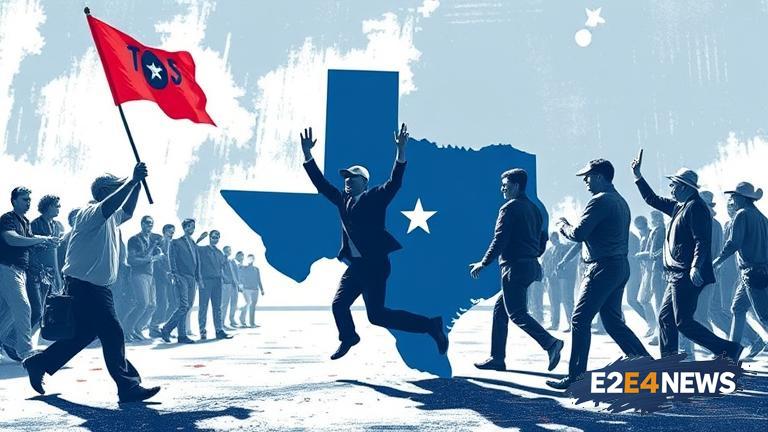A group of Texas Democrats made a dramatic exit from the state capital, Austin, to prevent a vote on a highly contested redistricting bill. The bill, which was proposed by Republican lawmakers, aimed to redraw the state’s congressional and legislative districts in a way that would likely favor the Republican Party. The Democrats, who are outnumbered in the state legislature, saw this as an attempt to disenfranchise minority voters and undermine their political power. By fleeing the state, the Democrats hoped to deny the Republican majority a quorum, which is necessary to hold a vote on the bill. The move was seen as a last-ditch effort to block the bill, which had already passed the state Senate and was expected to pass the House of Representatives. The redistricting bill was widely criticized by Democrats and civil rights groups, who argued that it would lead to the dilution of minority voting power and the creation of gerrymandered districts. The bill’s proponents, on the other hand, argued that it was necessary to ensure fair representation and to reflect the state’s changing demographics. The controversy surrounding the bill has sparked a national debate on voting rights and political representation, with many seeing it as a test case for the ongoing struggle for democracy and equality in the United States. The Texas Democrats’ decision to flee the state has been met with both praise and criticism, with some hailing it as a brave stand against partisan politics and others condemning it as a cynical ploy to avoid accountability. As the standoff continues, it remains to be seen whether the Democrats’ tactic will be successful in blocking the bill or if it will ultimately backfire and embolden the Republican majority. The incident has also raised questions about the role of the federal government in protecting voting rights and ensuring fair representation, particularly in states where partisan politics has led to the manipulation of electoral districts. The Biden administration has been under pressure to take action on voting rights, and the Texas controversy may provide a catalyst for federal intervention. Meanwhile, the Texas Democrats’ move has been seen as a nod to the state’s rich history of political activism and civil rights struggles, from the days of Lyndon B. Johnson to the present. The state has long been a battleground for voting rights, with many notable cases making their way to the Supreme Court. The current controversy is likely to add another chapter to this history, as the struggle for democracy and equality continues to unfold. The incident has also highlighted the deepening partisan divide in the United States, with many seeing the redistricting bill as a symbol of the Republican Party’s efforts to consolidate power and undermine democratic institutions. As the country approaches the 2022 midterm elections, the Texas controversy is likely to be seen as a bellwether for the ongoing struggle for democracy and representation. The Democrats’ decision to flee the state has been met with support from many civil rights groups, who see it as a necessary step to protect the rights of minority voters. The NAACP, the ACLU, and other organizations have condemned the redistricting bill as a blatant attempt to disenfranchise minority voters and undermine their political power. The controversy has also sparked a wider debate about the role of money in politics and the influence of special interest groups on the electoral process. As the standoff continues, it remains to be seen whether the Democrats’ tactic will be successful in blocking the bill or if it will ultimately lead to a wider conversation about the need for electoral reform and the protection of voting rights.





